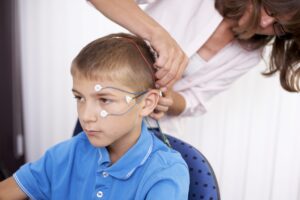Objective: The present study investigates the effectiveness of using perceptual-motor skills on the decrease in behavioral disorders of five to eight year old children with ADHD.
Method: In this quasi-experimental study, 26 five to eight year old children with ADHD referred to four occupational therapy centers were randomly divided into an experimental and a control group. Research instruments included Parents Rating Scale (CPRS-48), Child behavior check list (CBCL), Bruninks – Oseretsky Test of Motor Proficiency (BOMT). After the intervention, which included a six week perceptual-motor practice, mothers were asked to fill out the behavioral checklists again. BOMT was used for post-intervention assessment.
Results: At the end of the intervention period all motor component scores (gross movements, fine movements, upper limb speed and dexterity and total score) showed significant improvement. Behavioral disorders (anxiety, social problems, attention problems, aggressive behaviors and others) also showed significant improvement.
In addition, children in the control group showed significant improvement in fine movement and BOMT total score, as well as a decrease in aggressive behaviors and anxiety.
Conclusion: The improvement of motor skills in children in this study appears to have resulted in a feeling of competency as well asdaily activities and academic situations. More success, less failure, and finally more positive evaluations led to a decrease in aggression, anxiety and other behavioral problems in general among the children in this study.








